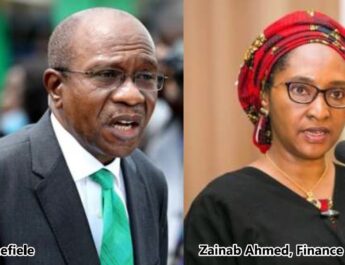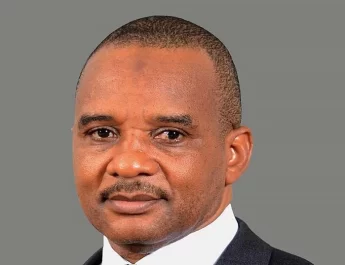Financial experts caution President Bola Tinubu against the consequences of jerking up the 2025 Budget from N49.7 trillion to N54.2 trillion
The Federal Government has initiated moves to increase its 2025 budget to N54.2 trillion, up by 9.1 per cent from N49.7 trillion initially presented to the National Assembly on December 18, 2024.
A letter from President Bola Ahmed Tinubu to the National Assembly requesting the increase was read at plenary last week by the President of the Senate, Godswill Akpabio. The letter was titled, “2025 Appropriation Bill: Allocation of Additional Revenue of N4.53trillion.”
Akpabio said the increase arose from N1.4 trillion additional revenue from the Federal Inland Revenue Service (FIRS), N1.2 trillion made by the Nigeria Customs Service (NCS), and N1.8 trillion generated by some other government-owned agencies.
Consequently, he directed the request to the Senate Committee on Finance and Appropriations for expeditious consideration and declared that the budget consideration would be concluded and passed before the end of this month.
The president’s letter reads: “I am writing to inform you of the availability of additional revenue amounting to N4.5 trillion and to propose its allocation within the 2025 Appropriation Bill to enhance the budget’s responsiveness to the nation’s most pressing priorities and aspirations.”
President Tinubu, who noted that the additional increase to the budget will give opportunity for government to address Nigeria’s critical challenges, said, “This additional revenue sourced from key agencies represents a pivotal opportunity to address Nigeria’s critical challenges and advance her development agenda.
‘’This additional revenue, sourced from key agencies, represents a pivotal opportunity to address Nigeria’s critical challenges and advance her development agenda: Government-Owned Enterprises (GOES): N1,823,879,970,637; Federal Inland Revenue Service, FIRS, N1,497,600,000,000; (Federal Government’s 52% share of the increase in revenue from N22.1 trillion to N25.1 trillion.
Nigerian Customs Service (NCS): N1,209,000,000,000 (Federal Government’s 52% share of the increase in revenue from N6.5 trillion to N9.0 trillion)
“With this additional revenue, the 2025 Appropriation Bill’s total budget size will increase from N49.7 trillion to N54.2 trillion, demonstrating our commitment to inclusive growth and security.
“Proposed Allocation of Additional Revenue: I propose that these funds be allocated to the following transformative expenditure areas: Solid Minerals Sector-N1 trillion.
“To support economic diversification by unlocking the potential of Nigeria’s vast solid mineral resources, which remain an untapped revenue stream and a vital pillar of non-oil growth.
“Recapitalization of the Bank of Agriculture (BoA) N1.5 trillion: To transform Nigeria’s agricultural landscape, ensure food security, and empower smallholder farmers and agribusinesses.
“Recapitalization of the Bank of Industry (Bol) N500 billion To provide critical support to small and medium enterprises (SMEs), drive local manufacturing, and reduce dependence on imports
“Critical Infrastructure Projects (RHID Fund) – N1.5 trillion. Allocated as follows: Irrigation Development (through River Basin Development Authorities): N380 billion.
“Transportation Infrastructure (roads and rail): N700 billion (300 billion for the construction and rehabilitation of critical roads and 400 billion for light rail network development in urban centers), Border Communities Infrastructure: N50 billion, Military Barracks Accommodation: N250 billion, and Military Aviation: N120 billion.’’
After reading the letter, the President of the Senate directed the request to the Senate Committees on Finance, chaired by Senator Sani Musa (APC, Niger East) and Appropriations, chaired by Senator Olamilekan Adeola (APC, Ogun West), for expeditious consideration.
Akpabio assured that the increase will be implemented on the 2025 budget and passed by the National Assembly before the end of February for the president’s assent.
However, in a swift reaction some financial analysts and public affairs commentators condemned the development, describing it as a major threat to macroeconomic stability, including inflation, exchange rate and fiscal deficit amongst others.



